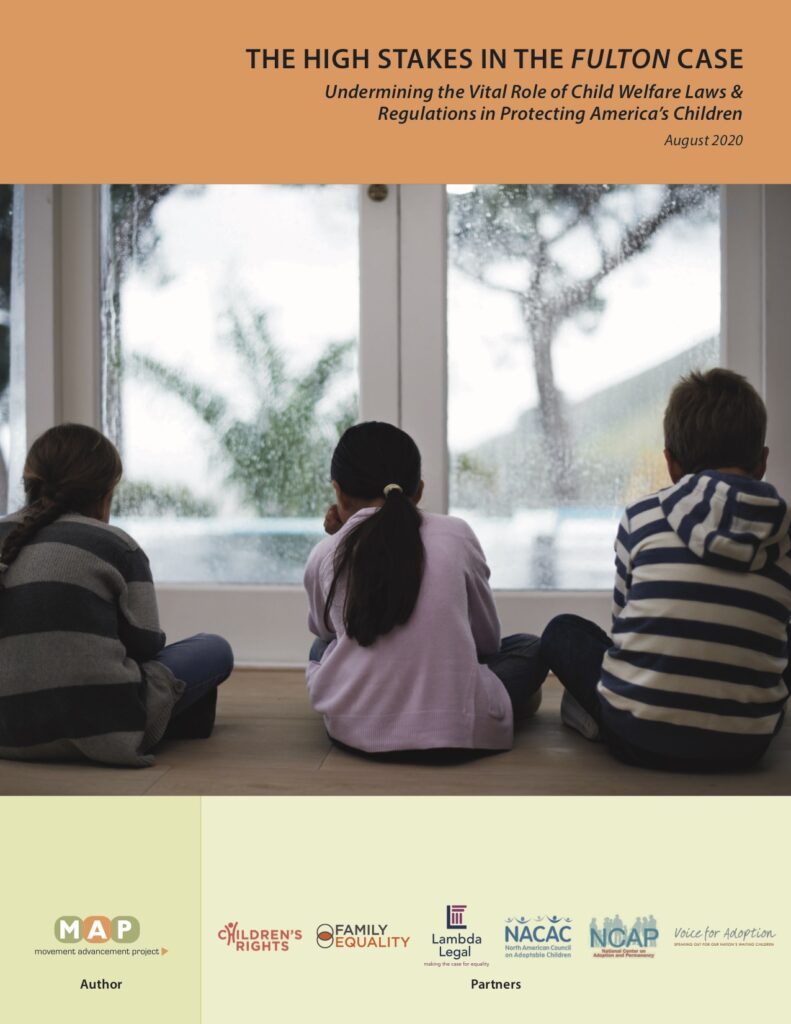Last Updated: August 18, 2020
This report highlights what is at stake in Fulton v. City of Philadelphia, a case that could harm children and families in the child welfare system and jeopardize the ability of governments to enforce nondiscrimination protections more broadly.
Oral arguments will be heard by the U.S. Supreme Court in the fall of 2020. Learn more about the case here.
Family Equality is grateful for the Movement Advancement Project‘s leadership in producing this report, alongside our partners:
In the fall of 2020, the U.S. Supreme Court will hear oral arguments in Fulton v. City of Philadelphia, a case related to taxpayer-funded child welfare agencies. If the Court rules that Catholic Social Services (CSS) can refuse to comply with the City of Philadelphia’s nondiscrimination requirement and reject qualified parents simply because of who they are or what religion they are, it is children who will ultimately pay the price.
This report highlights what is at stake in Fulton v. City of Philadelphia, a case that could harm children and families in the child welfare system and jeopardize the ability of governments to enforce nondiscrimination protections more broadly.
Potential Outcomes in Fulton v. City of Philadelphia
The report examines the potential outcomes of the Fulton v. City of Philadelphia case and shows how a broad ruling from the Court in support of CSS could result in:
- Religious child welfare agencies could be given a right to demand taxpayer funding while rejecting qualified and loving parents simply because they are Jewish, Catholic, LGBTQ, or single parents.
- Nearly every religiously affiliated social service agency that receives government funding—such as job training programs, emergency shelters, and more—might claim a right to discriminate.
- If the government is unable to set and enforce the terms of its contracts, even when paying agencies with taxpayer money, it would make it nearly impossible for state and local governments to set standards for the provision of public services.
- Religious agencies might be able to claim a religious exemption to a wide array of regulations and laws, including those that protect public health and safety—like building codes, sanitation requirements, and food safety regulations.
A broad ruling in favor of CSS could leave millions of people without access to needed publicly funded services—and discrimination against LGBTQ people and same-sex couples, women, people of faith, unmarried couples, and more would become a regular occurrence when seeking needed social services or assistance.
Recommended citation: Movement Advancement Project. August 2020. The High Stakes in the Fulton Case: Undermining the Vital Role of Child Welfare Laws & Regulations in Protecting America’s Children. www.lgbtmap.org/2020-fulton-report. [Date of access].

